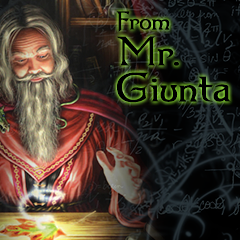Distraction is the not-so-distant cousin to procrastination. It’s oh so easy to hop onto Reddit and browse for a few minutes, which could potentially become hours, rather than work on an outline, edits or write. A quick look at Facebook to answer messages and reply to posts doesn’t seem like it would take much time, but every minute spent doing so is a minute the story waits to be shaped. Sorry, can’t spare the time for a video on Youtube, even if it is a new Last Week Tonight with John Oliver. I mean, I could just take a quick peek at Steam to see if anything is on sale or if something new might be worthy of the wishlist. Honestly, though, none of it is so important it can’t wait until I’m done working. So why do it?
I can think of a number of reasons. In case it isn’t obvious, by virtue of this being my blog, this is all my opinion and pertains only to my habits. You may or may not be in a similar circumstance from time to time. The biggest reason I take a break from writing, during the time I allot for it, is because I need a break. Whether it’s to take a breath before tackling the next bit or to give myself time to think about how I’m going to tackle the next bit, I just need a few minutes to not be writing. Of course, those minutes can pile up into a less than adequate session overall. I try to keep pressure on myself, though, to write until the end of the time I set aside for it or until I reach the end of a scene or chapter. It’s pretty rare I continue to write once I’ve done that, as I’m typically starting a new scene or chapter at the beginning of every session.
While there are distractions that can’t be avoided, like dogs or children, the ones I seek out, like breaks to rest or eat, are far more numerous. They happen more often if I don’t plan ahead. Typically I do this by creating an outline first or even going so far as to flesh out a scene without actually writing it. This is how I keep myself on track. Any time I’ve tried to write by the seat of my pants, just winging a scene, things work out in the end, but I potentially end up writing material I throw away. That almost never happens when I outline. I don’t mind doing extensive edits or reworking a scene if it makes the story better, but a part of me dies whenever I have to completely discard something I considered worth writing. You’d think I’d be used to it, since I’ve rewritten entire novels, but… nope, I still don’t like doing it.
What works best for me is to start with a simple outline of events, dialogue and descriptions that have to happen. I then either flesh out every scene ahead of time or just the next one I’m going to work on. Having that framework as I write keeps my mind from wondering what else I could be doing. Writing is hard work for me. I don’t do it to work out issues. Writing a novel isn’t the same as journaling, which I don’t do – unless you consider these blog posts a form of journaling. There’s no therapeutic value in writing a novel for me. I do it to entertain readers, myself included. It’s not actually fun until it’s over, when it’s in print and I can sit down to relax and read it.
Sorry, I got distracted. What was I talking about? Oh, right! Outlines. Consider them anti-distractions. Or guard rails. And just because I use them doesn’t mean I don’t have a muse rattling off words in my head. Half the time it feels more like I’m taking dictation than doing any actual writing. It’s annoying when it hits me in the shower or while I’m trying to sleep, and I have to rush get it written down before I forget. In any case, distractions can serve a purpose if you keep them under control. If you’re spending more time doing anything but write during the time you’ve set aside for it, you might want to consider why that is. Go over the last section you wrote, read it to get back into your groove. If you can’t make yourself write, work on edits or the outline. Flesh out what comes next with very simple sentences you can elaborate on in the future. It doesn’t have to be pretty or poetic to be the backbone of a story.
I’d say just keep on writing, but I’ve failed to follow that advice so often that I’m not allowed to preach it. So, just keep trying! Whether you do a paragraph or a page is better than nothing at all. If at the end of a session all I had done was a new outline, I’d be miles ahead of where I was when I started.

